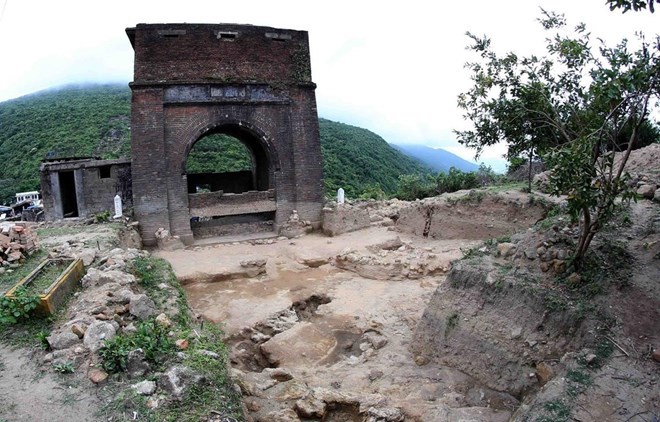Original vestige unearthed at the Hai Van Gate
Images: The ancient, pristine beauty of Hai Van Gate
Dispute leaves old gates in ruins
 |
| Hai Van Gate |
The Hai Van Quan (Hai Van Gate) national relic site will be restored for preservation as proposed by the People’s Committee of central Thua Thien-Hue province.
The committee’s proposal on an investment project for the work was approved by the People’s Council of Thua Thien-Hue on April 23.
Located 490m above sea level, Hai Van Gate sits atop its namesake mountain pass and connects Da Nang’s Lien Chieu district with Thua Thien-Hue’s Lang Co township, Phu Loc district.
The Hai Van Pass runs some 21km on the Bach Ma Range, which juts into the East Sea in central Vietnam.
The relic complex was built in 1826 under the rule of the Nguyen dynasty’s King Minh Mang (1791-1841), who ordered the construction of multiple defensive structures on Hai Van Pass to protect the then imperial capital of Vietnam in Hue. The structures included fortifications, store houses and cannon forts.
According to historical records, after building the complex, King Minh Mang inscribed its name in Vietnamese - “Hai Van Quan” - on the side of the gate facing the Hue Imperial Citadel, and the words “Thien ha de nhat hung quan” (the world’s most marvelous wonder) on the other side facing Da Nang.
The gate was recognised as a national relic site in April 2017.
It has grown to become a popular attraction among tourists as it offers stunning views of the surrounding water bodies and landscape. Last year, the relic site welcomed around 2 million tourists, 90 percent of whom are foreigners.
The project, which has total funding of about 42.33 trillion VND (1.82 billion USD), will be carried out by Thua Thien-Hue province and Da Nang city from 2019 to 2020.-VNA
 Located 490m above sea level, Hai Van Gate sits atop its namesake mountain pass and connects Da Nang’s Lien Chieu district with Thua Thien-Hue’s Lang Co township, Phu Loc district.
Located 490m above sea level, Hai Van Gate sits atop its namesake mountain pass and connects Da Nang’s Lien Chieu district with Thua Thien-Hue’s Lang Co township, Phu Loc district.